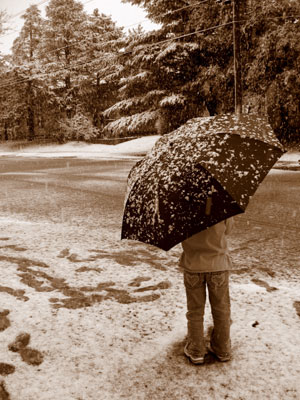All Nonfiction
- Bullying
- Books
- Academic
- Author Interviews
- Celebrity interviews
- College Articles
- College Essays
- Educator of the Year
- Heroes
- Interviews
- Memoir
- Personal Experience
- Sports
- Travel & Culture
All Opinions
- Bullying
- Current Events / Politics
- Discrimination
- Drugs / Alcohol / Smoking
- Entertainment / Celebrities
- Environment
- Love / Relationships
- Movies / Music / TV
- Pop Culture / Trends
- School / College
- Social Issues / Civics
- Spirituality / Religion
- Sports / Hobbies
All Hot Topics
- Bullying
- Community Service
- Environment
- Health
- Letters to the Editor
- Pride & Prejudice
- What Matters
- Back
Summer Guide
- Program Links
- Program Reviews
- Back
College Guide
- College Links
- College Reviews
- College Essays
- College Articles
- Back
The Language of Medicine MAG
Everyone in my preschool class had aspirations for greatness. When asked by our teachers, three of my four-year-old chums would be president, six would be firefighters, and the rest would glue themselves to the playground and avoid growing up entirely. I, too, knew precisely what my future would entail. “And Stephanie, what will you be when you grow up?” Ms. Rita asked me. “I'm going to be a doctor like my daddy,” I responded confidently, “or no … I'll just be a dinosaur.” Unfortunately in this economy there is a shortage of jobs for the average Stegosaurus, so I revised my goal for my future and concluded that the medical field would benefit from a dreamer like me.
As I got older my teachers, friends, and interests all changed, but my goal never did. I began my training early, fashioning myself into the local authority on all things biological. I diagnosed diseases within my own class and dressed wounds procured at recess. My friends wanted to be veterinarians, but my dad inspired me down my path. “What does your dad do, Stephanie?” inquired my first grade teacher. “He's a doctor,” I replied, “He kisses owies.” And I knew that was what I wanted to do some day too.
Through my formative years, I accompanied my dad on morning rounds on Sundays. I was awed by his poise as he taught his residents the essential minutiae of reading a chest X-ray or performing a bronchoscopy. I was a sponge, absorbing his riddles of nonsensical vocabulary like they were essential to my survival. Alveoli, bronchioles, pleurisy, and pneumothorax – I wrote it all down, knowing that it was never too early to start studying for my MCATs.
I was blessed with access to other opportunities within the realm of medicine, as well. As a freshman, I job shadowed an internationally renowned thoracic surgeon as he executed a textbook lobectomy, the removal of a defunct portion of the lung. Not only was I able to watch the procedure, but I stood at the head of the patient, observing the surgery from two feet away. “Mind your stomach,” Dr. Leroy warned, “Many observing med students get a vasovagal reflex, so please avoid vomiting or passing out on my sterile patient.”
My stomach held itself quite well; I found that it was my brain that needed minding. It buzzed as dreams of my medical future manifested into certainty. I was no longer playing doctor but actually assisting a surgeon. I imagined my future self, standing in a similar operating room, wearing a white coat embroidered with my name, and going home after knowing that I saved someone's life.
The thought overwhelmed me as I carried four-and-a-half pounds of removed, cancerous lung tissue to another room. I was reminded of what my dad always said about his job: “The greatest reward in my profession is knowing that I make a difference every day and bring more happiness into the world with every right decision I make.” The same philosophy was expressed by Dr. Leroy, and I knew one day I would feel the same way about my job too.
As my future built itself in my mind, I began to realize the discipline and diligence necessary to achieve my goal. Driven by wild dreams of running code blues, I worked harder than ever. I pushed myself academically, earning straight A's; I got involved in gymnastics, my school, and my community, and through my activities achieved a new level of focus. I developed perseverance and shed my old dream, replacing it with something more solid: a tangible goal.
It is true that my exposure to the medical field has had a substantial impact on my life. It is also true that I will have the opportunity to make a substantial impact on medicine. I knew that when I was four, and I still know it now. My whole life I have known that I will attend a four-year college. I know I will graduate from medical school, and one day I will speak the language of medicine. I know I will bring more happiness to the world when I make the right choices in delicate situations. I know I will save lives.

Similar Articles
JOIN THE DISCUSSION
This article has 1 comment.
